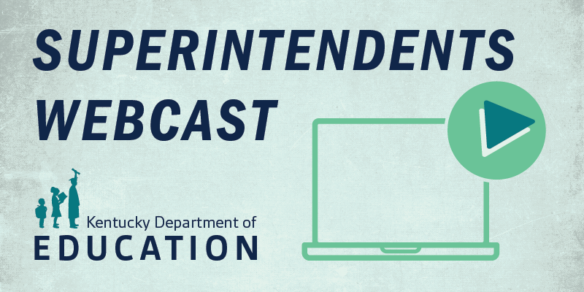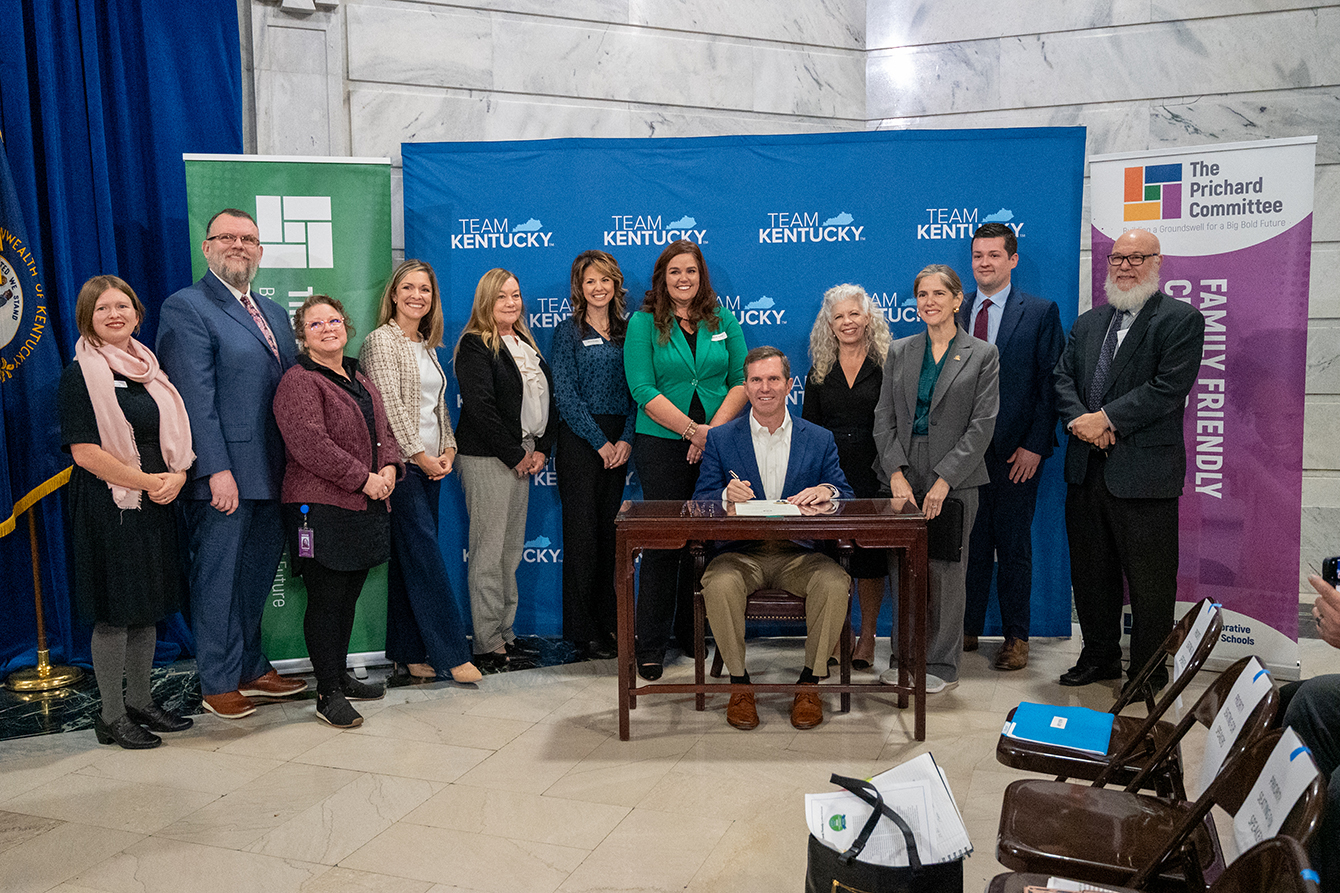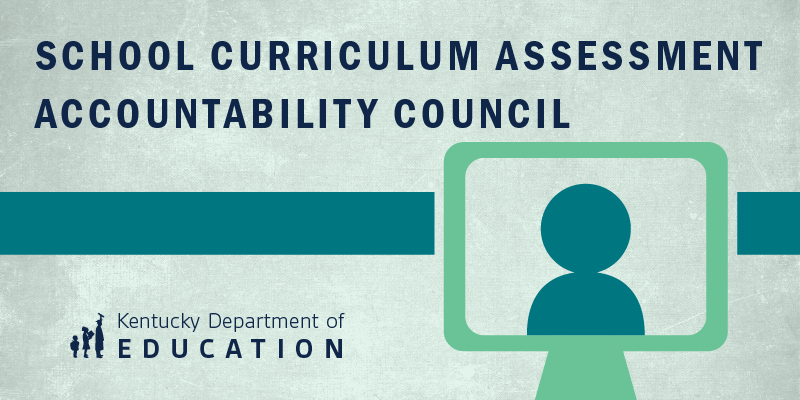
Kentucky Department of Education (KDE) staff discussed budgetary legislation from the 2024 legislative session during the Superintendents Webcast on May 14.
The main budget bill, House Bill 6, included money for school resource officers (SROs): $16.5 million in 2024-2025 and $18 million in 2025-2026. Associate Commissioner Matt Ross in the KDE Office of Finance and Operations said KDE will reimburse school districts up to $20,000 for each campus employing at least one on-site full-time certified school resource officer.
If funds are insufficient, the money will be divided proportionally through a system Ross said is still being developed by KDE.
Senate Bill (SB) 91 aims to provide relief to districts experiencing real estate growth and a potential cut in funding through the Support Education Excellence in Kentucky (SEEK) funding formula. Chay Ritter, division director in the KDE Office of Finance and Operations, said KRS 157.360(17) – which is known as the “4% adjusted assessment rule” – already allows for some relief, and SB 91 would be in addition to that relief.
Ritter said the bill is specific to real property assessments only – not the assessment used for SEEK calculations – and multiple qualifying events must occur for a district to qualify. Funds must also be available in the SEEK budget appropriation in order for districts to receive the relief.
To qualify for the 2024-2025 school year, districts and their boards:
- Must have qualified in 2023-2024 and 2024-2025 for the 4% adjusted assessment;
- Must levy the 4% tax rate or greater in 2024-2025; and
- Must have experienced a cumulative growth in real estate assessments from fiscal year 2022-2023 to 2024-2025 of more than 14.4%. KDE will adjust local effort specific to real property for growth above 14.4%.
For the 2025-2026 school year, districts and their boards:
- Must have qualified in 2024-2025 and 2025-2026 for the 4% adjusted assessment;
- Must levy the 4% tax rate or greater in 2025-2026; and
- Must have experienced a cumulative growth in real estate assessments from fiscal year 2022-2023 to 2025-2026 of more than 25.8%. KDE will adjust local effort specific to real property for growth above 25.8%.
Ritter said KDE is working on how the reporting and notification portion of the bill will be conveyed to districts. He expects if a district qualifies for the funding, payment will not occur until the SEEK final calculation that occurs on March 1 each year.
Another piece of legislation, House Bill 727, allows local boards of education to issue general obligation bonds up to 2% of their assessed property value. The bonds must be issued through a competitive solicitation process.
Ross said KDE is working with the School Facilities Construction Commission and the Kentucky Office of Financial Management on guidance for districts to break down the legislation and its potential pitfalls.
KDE staff has created legislative guidance to help school leaders navigate other recent legislation. Overall legislative guidance for the 2024 Regular Session is now available on the KDE Legislative Guidance webpage. Supplemental guidance is also available for:
- House Bill 162 (numeracy);
- House Bill 499 (career and technical education funding distribution); and
- House Bill 535 (civics).
Brian Perry, director of government relations for KDE, said there may be additional supplemental guidance coming from KDE.
Summer Electronic Benefits Program
Superintendents heard from the Kentucky Cabinet for Health and Family Services (CHFS) about the Summer Electronic Benefits Transfer (SEBT) program.
SEBT is a permanent federal child nutrition program offering benefits to students from eligible families to help cover the cost of meals during the summer when schools are not in session.
More than 400,000 students are expected to receive SEBT in 2024. A total of $48 million has been issued in 2024 and each eligible student will receive a summer benefit of $120.
The following students are considered eligible for SEBT benefits:
- School-aged students (ages 6 to 18 as of Aug. 1, 2023) who have taken part in the Supplemental Nutrition Assistance Program (SNAP), the Kentucky Transitional Assistance Program (KTAP), and/or Kinship Care for at least one month since July 1, 2023, will automatically receive benefits.
- Families of school-aged students that do not fall into the above category but are within the guided income eligibility limits, can apply for SEBT benefits online.
CHFS Program Coordinator Jessica Hinkle said district support is critical to get students enrolled. Each school district must compile a file of all enrolled students to the secure SEBT portal starting this month. A specific Excel template will be offered to districts and Hinkle said a training session for SEBT administrators will be offered June 4.
Hinkle said any information on Pandemic Electronic Benefits Transfer materials that districts have online should be taken down. She also said a media toolkit will be provided to administrators for use on websites, social media platforms, newsletters and other communications.
Administrators should email SEBTschooladmin@ky.gov if they have any SEBT data-related questions.
In other business, KDE staff updated superintendents on:



Leave A Comment